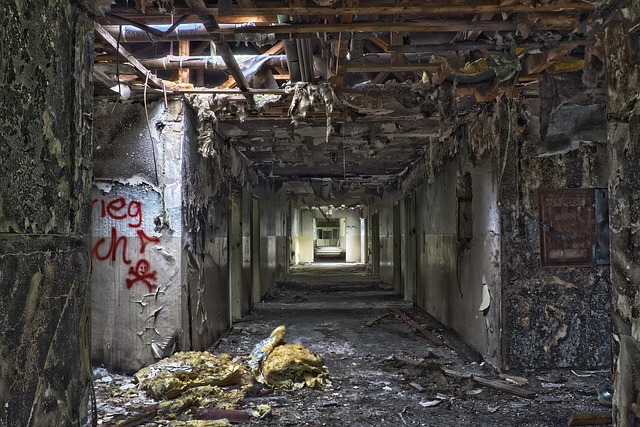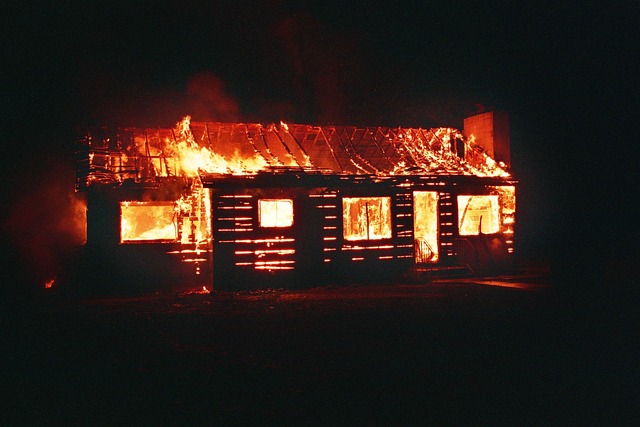Selling a fire-damaged house in Houston requires a structured approach, involving comprehensive fire damage assessment by certified experts to document visible and hidden losses. This report guides negotiations and repairs, ensuring transparency and fairness for all parties. Strategic marketing shifts focus from destruction to potential, utilizing professional content to showcase renovation possibilities. Post-fire renovation involves careful planning, qualified contractors for damage assessment and repair estimates, and adherence to building codes for successful resale in Houston.
Selling a fire-damaged house in Houston can be challenging, but with the right approach, it’s feasible. This comprehensive guide navigates the complexities of selling a fire-affected property in the Houston real estate market. From understanding fire damage assessments to legal and insurance considerations, marketing strategies for attracting buyers, and the renovation process, you’ll find valuable insights to restore and resell your home successfully.
- Understanding Fire Damage Assessment in Houston Real Estate
- Legal and Insurance Considerations for Selling a Fire-Damaged Property
- Marketing Strategies to Attract Buyers Despite Damage
- The Renovation Process: Restoring Your House Post-Fire
Understanding Fire Damage Assessment in Houston Real Estate

When selling a fire-damaged house in Houston, understanding fire damage assessment is crucial for both sellers and buyers. In Houston, real estate professionals employ a systematic approach to evaluate the extent of fire damage, ensuring transparency and fairness in transactions. This process involves a thorough inspection by certified experts who document every aspect of the property’s condition post-fire.
The assessment takes into account not just visible damages but also hidden effects like structural integrity, electrical systems, and potential hazards. It’s important to note that a fire damage report is an essential document in the selling process, providing insights that can impact negotiations and repair estimates. For Houston residents looking to sell, being prepared with this information allows for smoother transactions and helps attract buyers who understand the unique considerations of purchasing a fire-damaged property.
Legal and Insurance Considerations for Selling a Fire-Damaged Property

When considering to sell a fire-damaged house in Houston, there are several legal and insurance considerations that homeowners must navigate. The first step is to assess the extent of the damage and determine if it’s feasible to repair or if demolition is required. This not only impacts the selling price but also has legal implications. Homeowners need to consult with local building code officials to understand reconstruction permits and guidelines, ensuring any repairs meet safety standards.
Insurance plays a pivotal role in this process. Homeowners should review their policy thoroughly, noting coverage for fire damage, depreciation, and potential legal fees associated with the sale. In many cases, insurance companies may require detailed reports on the damage, including estimates for repairs, before agreeing to cover losses. Selling a fire-damaged property requires careful documentation of these considerations, ensuring all parties involved are aware of the legal and financial obligations attached to the transaction in Houston.
Marketing Strategies to Attract Buyers Despite Damage

When selling a fire-damaged house in Houston, effective marketing strategies are key to attracting buyers beyond the visible signs of damage. Emphasize the potential for transformation and rebuilding; many buyers are drawn to the idea of creating their dream home. Highlight the structural integrity of the property, focusing on what’s remaining intact—from solid foundations to serviceable walls. Professional photography and video tours can play a significant role in marketing fire-damaged properties. Capture before-and-after images, showcasing the potential for renovation and the progress made in restoration efforts. Virtual tours allow prospective buyers to explore the house remotely, offering them a sense of space and layout even if they cannot physically visit yet.
In addition, be transparent about any repairs needed and provide detailed estimates or plans for remediation. This builds trust with potential buyers and demonstrates your commitment to making the necessary improvements. Utilize online listings and social media platforms to reach a wider audience, clearly stating that the property is suitable for renovation. Targeted marketing campaigns can also focus on specific buyer demographics known for their interest in affordable housing or rehabilitation projects. By presenting the house as an opportunity for a fresh start and showcasing its underlying value, you can successfully market a fire-damaged home in Houston to the right buyers.
The Renovation Process: Restoring Your House Post-Fire

After a fire, the renovation process for a Houston home can seem daunting, but with careful planning and professional help, it’s achievable. The first step is assessing the damage, which involves a thorough inspection by a qualified contractor who will provide an estimate for repairs. This includes structural repairs, replacement of burned materials like drywall, roofing, and flooring, as well as addressing any safety concerns from the fire.
The contracting team will then begin restoration work, focusing on restoring the home’s integrity and aesthetics. This involves removing affected items, cleaning, and repairing or replacing damaged areas. Once the repairs are complete, it’s crucial to ensure the house meets all building codes before putting it back on the market when selling a fire-damaged house in Houston.
Selling a fire-damaged house in Houston can be challenging, but with the right approach, it’s achievable. By understanding the assessment process, navigating legal and insurance complexities, employing effective marketing strategies, and undergoing meticulous renovation, you can transform your property into a desirable asset for buyers. Remember, each step is crucial in presenting a well-restored home that reflects its true potential, making the selling process a successful one for all involved.






